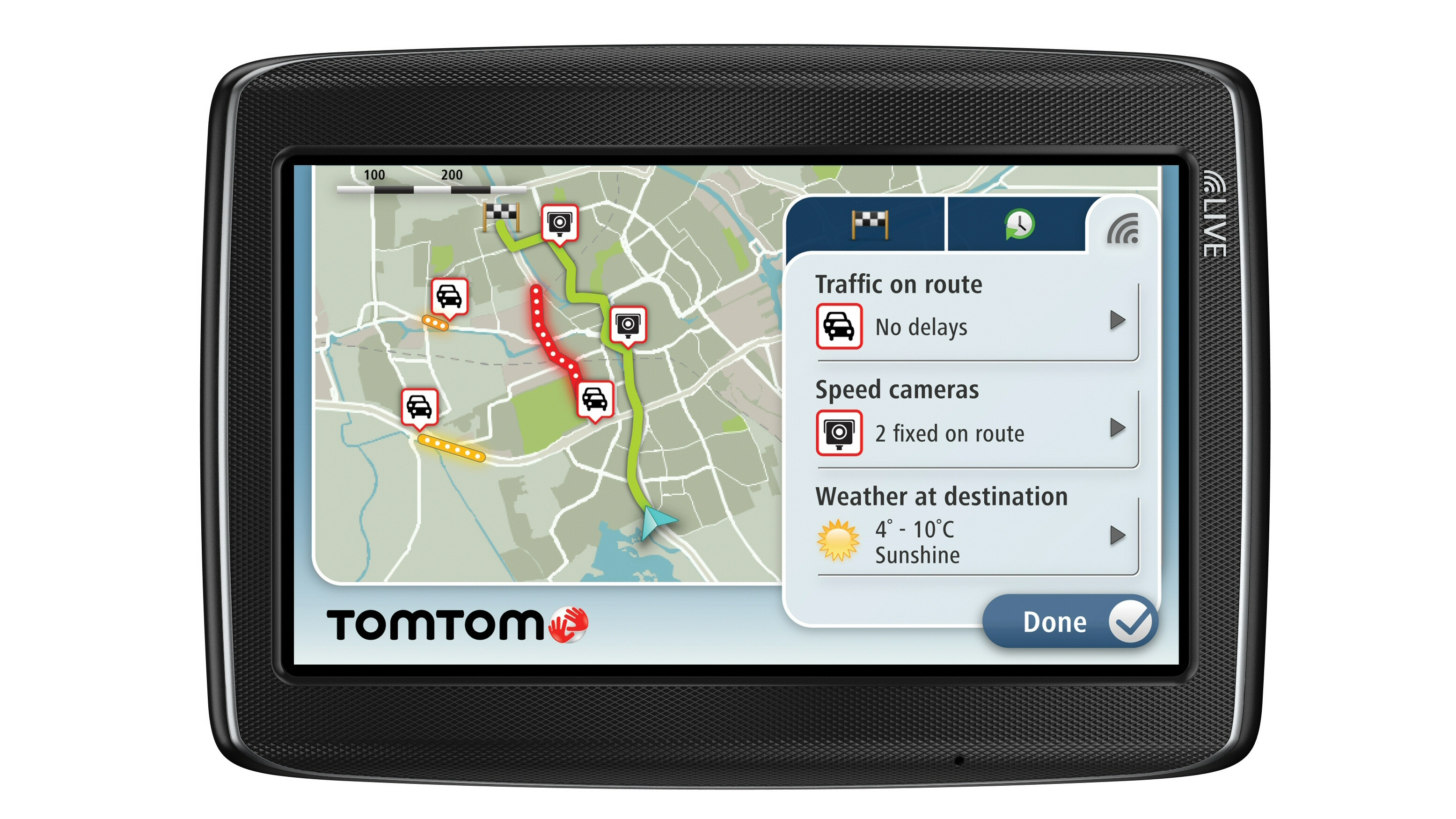How the iPhone further threatens sat-nav apps
After hardware, now phones are coming for the software

As Harry Hill didn't quite put it: I love sat navs, and I love smartphones. But which is better? Apple and Google, it seems, reckon that the answer is "smartphone".
I think they're right.
My quest for the perfect sat nav has cost me a fortune over the years, but the quest ended when I stuck the TomTom app on my iPhone.
TomTom's app does everything I need it to do: it knows which routes to avoid at particular times of the day, it can tell me if there's roadworks, an accident or another problem up ahead, it auto-corrects its own maps via 3G downloads, it can look up addresses from my contacts and it can Google for places when I'm not entirely sure what they're called.
It sucks battery power like a Dyson sucks up dirt and TomTom's own cradle is crazily expensive, but a cheap charger and a bit of gaffer tape solves those problems easily enough.
It's genuinely brilliant, and I'm sure rival firms' apps are just as good.
Ultimately, though, they're all doomed.
Get daily insight, inspiration and deals in your inbox
Sign up for breaking news, reviews, opinion, top tech deals, and more.
Apple, it seems, isn't spying on iPhone owners so that divorce lawyers can go "aha! You were here, then, with her, and you probably DID THINGS!". It's doing it to offer "an improved traffic service".
If they mean traffic in a "vroom vroom" sense, which I think they do, it may be new pants time for sat nav firms.
First, the phones came for their hardware. Now, they're coming for the software.
Where do you want to go today?
Steve Jobs doesn't like it when other people control key bits of technology, so it wouldn't be surprising if he wanted an alternative to Google Maps on iOS devices. Apple's 2009 purchase of mapping firm PlaceBase and the current drama over location recording suggests that Apple's plans for an alternative are well under way.
And of course, Google continues to improve its own mapping app on Android.
Between them, Apple and Google dominate the smartphone market - and before long, pretty much every phone will be a smartphone. If the two biggest players both provide decent mapping apps on every handset, with live traffic information, local search and perhaps social networking to boot, and if they provide that for free, then novelty voices may be all that's left.
For example, as Christopher Phin, editor of Tap!, points out: "We know that TomTom uses information from mobile phone providers to enhance the accuracy of its live traffic service, HD Traffic." Apple and Google don't need that. They've got the phones.
It's the good-enough problem all over again. Apple and Google don't need to offer best-in-class mapping; they just need to offer good-enough. When you've got good-enough sat nav for free, persuading you to upgrade isn't going to be easy - especially at the prices some firms are currently charging.
The road ahead for sat nav firms is looking awfully bumpy.
Writer, broadcaster, musician and kitchen gadget obsessive Carrie Marshall has been writing about tech since 1998, contributing sage advice and odd opinions to all kinds of magazines and websites as well as writing more than a dozen books. Her memoir, Carrie Kills A Man, is on sale now and her next book, about pop music, is out in 2025. She is the singer in Glaswegian rock band Unquiet Mind.
